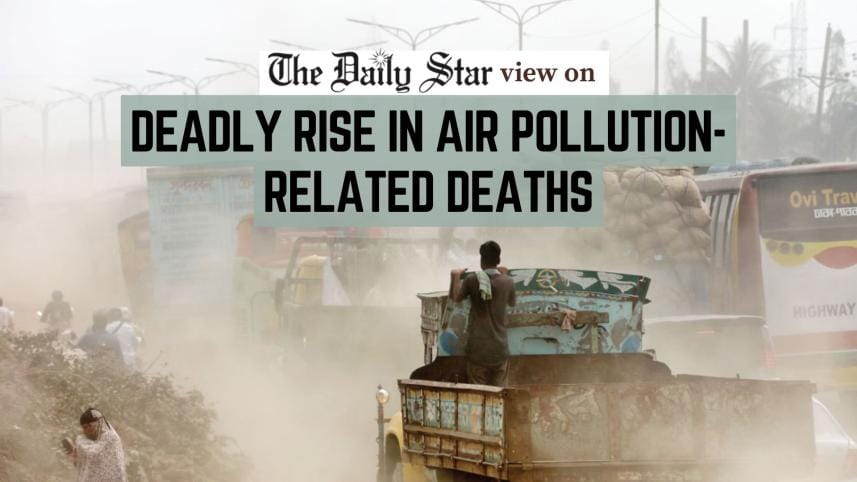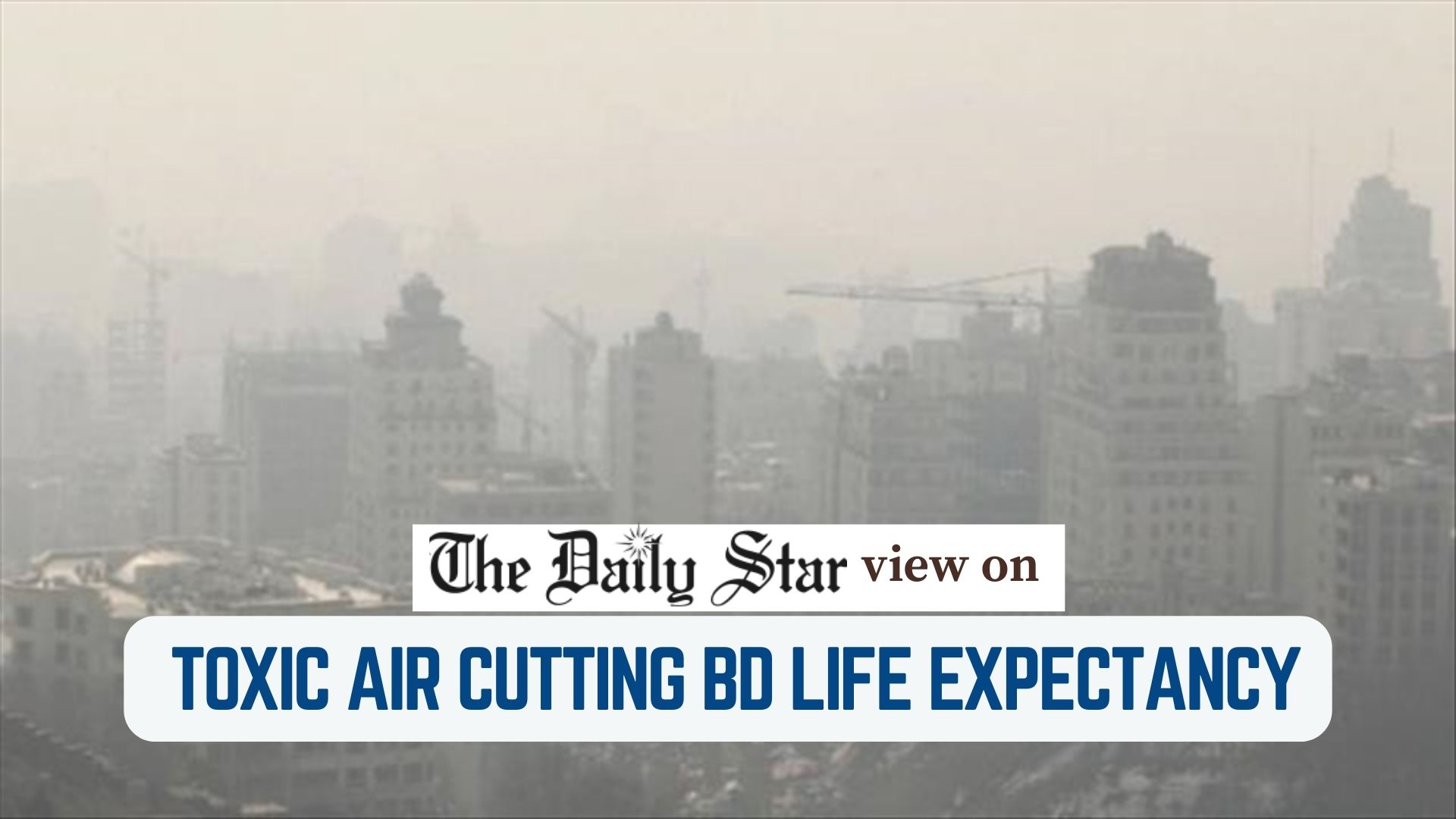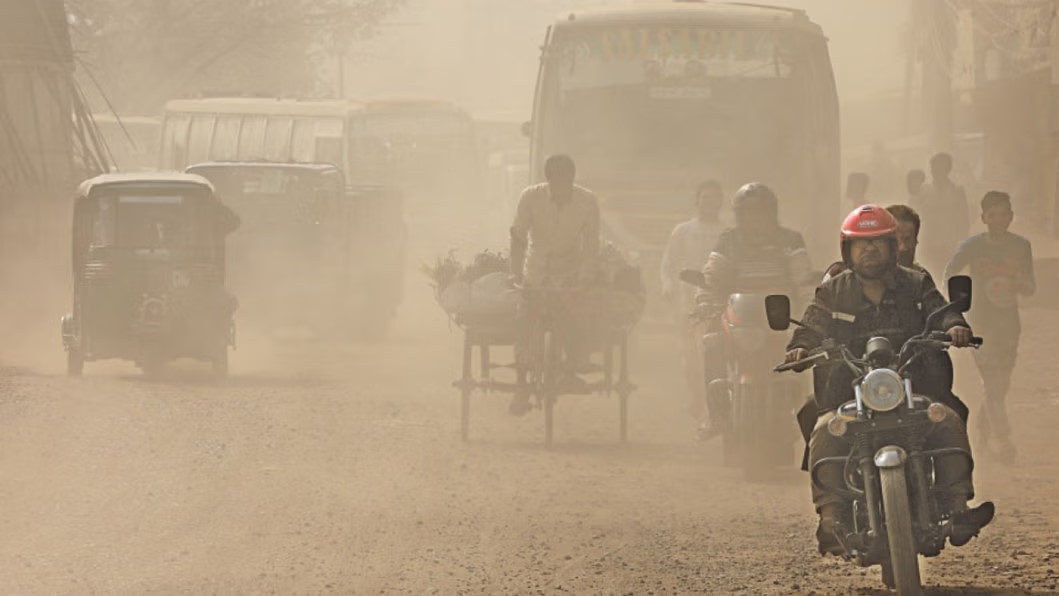Air pollution crisis demands urgent action

Two new global reports have once again laid bare Bangladesh's worsening air quality crisis—and the political inertia sustaining it. The Lancet Countdown 2025 report attributes 2.25 lakh deaths in 2022 to human-caused air pollution, while the State of Global Air 2025 report raises the 2023 toll to a staggering 2.7 lakh. Both reports rank Bangladesh among the world's most polluted countries, with PM2.5 concentrations exceeding even the World Health Organization's least stringent limit. Yet, despite this mounting death toll, successive governments have failed to treat air pollution as the public health emergency that it is.
What makes this inaction particularly indefensible is the policy contradiction at its core. In 2023 alone, Bangladesh spent $8.2 billion subsidising fossil fuels—more than it earned from carbon pricing—effectively rewarding the very industries driving these deaths. Coal's share in energy generation has quadrupled since 2016, while the share of renewables remained below one percent. This is a glaring case of economic misalignment: public money is being poured into polluting energy while citizens pay the price through diseases, lost productivity, and premature deaths. According to the Lancet report, heat-related labour losses in 2024 cost the economy $24 billion, or five percent of GDP, which is nothing short of an economic and moral failure rolled into one.
Equally troubling is the government's fragmented approach to air pollution control. While authorities occasionally shut down brick kilns or announce plans to remove unfit vehicles, these are reactive gestures, not sustained strategies. We do not have an enforceable clean air act, binding emission standards for industries, or centralised monitoring or accountability mechanism. This lack of coherence has allowed multiple sectors, including transport, construction, brick production, and power generation, to operate with impunity.
The human toll extends beyond respiratory illnesses. The State of Global Air report found that three out of four chronic obstructive pulmonary disease (COPD) deaths and one in three heart disease deaths in Bangladesh are linked to air pollution, alongside over 5,000 dementia deaths in 2023. The government's failure to integrate air pollution control into its noncommunicable disease (NCD) strategy thus represents a serious gap in public health planning. These issues demand a unified health-environment framework that addresses both prevention and treatment.
Bangladesh's policymakers must recognise that the air pollution crisis is no longer an environmental issue. We must prioritise reducing fossil fuel dependence, enforcing emission limits, investing in clean energy, and creating an independent air quality monitoring authority. Without these systemic reforms, the "development" we boast of will remain fatally compromised.



 For all latest news, follow The Daily Star's Google News channel.
For all latest news, follow The Daily Star's Google News channel. 

Comments